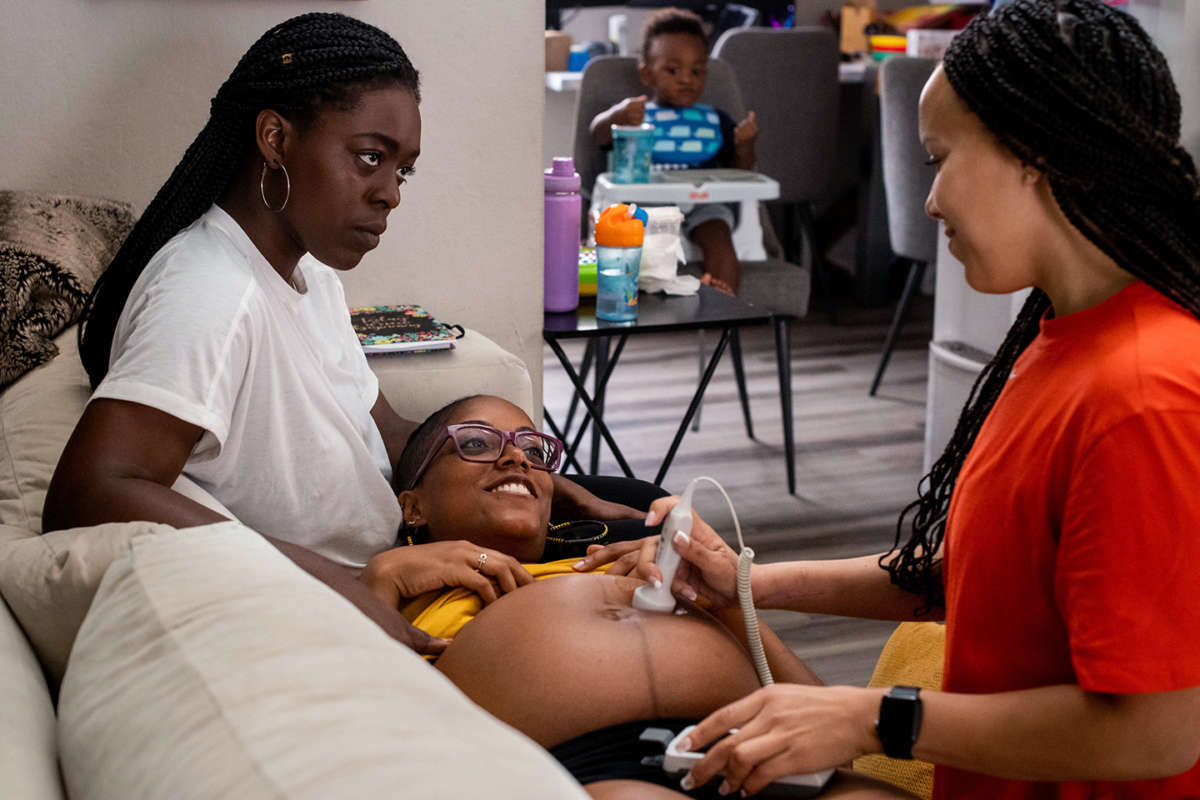As a Black woman from the South, I have countless traumatic memories of experiencing the health care system differently from the folks around me. When I gave birth 24 years ago, I was anxious because I was high-risk and just wanted my son to be healthy. Nothing else mattered. After hours of an induced labor with no pain medication, I remember pleading with my doctor that something was wrong. All he did in response was dismiss my cries for help, scoff and demand that I stop complaining. The entire time I felt helpless — questioning whether this was normal, yet knowing that it wasn’t. I was left behind.
The institutional racism that I experienced that day was not an isolated incident. Reproductive health disparities, particularly for Black folks seeking abortions, continue to hold us back from living healthy lives.
With the Supreme Court poised to overturn Roe v. Wade, people across the country are preparing for a major rollback of abortion access. However, Black folks are already being blocked from abortion care in many ways.
Anti-abortion laws disproportionately impact Black communities, who already face systemic barriers that prevent us from living free and healthy lives. For example, Texas’s latest anti-abortion law, which empowers vigilantes to sue anyone they suspect of providing an abortion, will worsen the targeted policing and surveillance that already hurts Black families. These barriers also contribute to a staggering Black maternal mortality rate — the maternal mortality rate among Black women is 3.5 times that of white women — and deny us the resources to raise our children.
Through my work training health professionals to overcome biases and address inequities in our health care system, as well as my personal experiences, I’ve come to learn about an injustice that’s lesser-known but just as devastating as abortion restrictions: health professionals consistently aren’t giving Black folks the comprehensive information about pregnancy options that we need to make informed decisions for our futures.
Research shows that more than half of Black folks do not hear about all of their options when discussing their pregnancy with a health professional like a social worker or counselor. In the same study, clients were 80 percent more likely to rate their counseling as “excellent” when their provider discussed all options compared to when they did not, regardless of whether they planned to continue their pregnancy or not.
When they withhold information about abortion, providers fail to respect our autonomy, making assumptions about desired pregnancy outcomes and ignoring patients’ holistic health beyond just their pregnancy. People who want but are unable to obtain an abortion are more likely to stay tethered to abusive partners, experience poor physical health, and are four times more likely to live below the federal poverty level. These outcomes have cyclic impacts on Black families and communities, not just the individual denied an abortion.
Just like with any other health care, access to abortion is a racial justice issue. Supporting abortion access is about supporting reproductive freedom for our community. Recent polling shows that most voters who support abortion rights believe abortion is more than a procedure — it is linked to freedom, financial stability, affordable child care and gender equality. It’s crucial for providers to recognize this and maintain an open, honest line of communication with their patients around abortion. This is even more important when working with Black patients who face stigma and barriers exacerbated by anti-abortion white supremacists pushing misinformation and racist rhetoric about abortion.
To ensure that Black folks are no longer left behind, we need to increase access to reproductive health care, including doctors who are dedicated to thoughtfully discussing all pregnancy options — without assumptions or judgment — so that Black families and other vulnerable communities can have the resources and support that they need to fully thrive. Comprehensive reproductive health care helps give us the opportunity and autonomy to shape our lives the way we want, without barriers
Organizations like mine are helping health care and social service workers identify the implicit biases we all have so we can start to create an equitable continuum of reproductive health care. But we can’t make this change on our own.
Black women continue to have the most disparate health outcomes and health care professionals continue to leave us behind. It’s time for our leaders to center Black folks in health care discussions and invest in an intersectional approach. These racial gaps in health care will remain unless we collectively dismantle oppressive health systems designed to explicitly restrict care for Black patients. With the right investment and training, providers can offer comprehensive reproductive health care that respects every person and every body.
Media that fights fascism
Truthout is funded almost entirely by readers — that’s why we can speak truth to power and cut against the mainstream narrative. But independent journalists at Truthout face mounting political repression under Trump.
We rely on your support to survive McCarthyist censorship. Please make a tax-deductible one-time or monthly donation.
